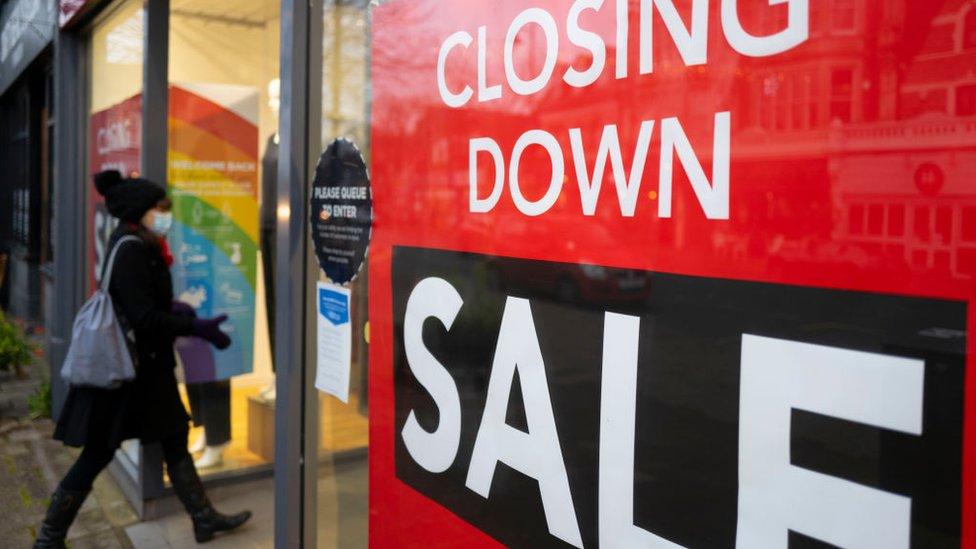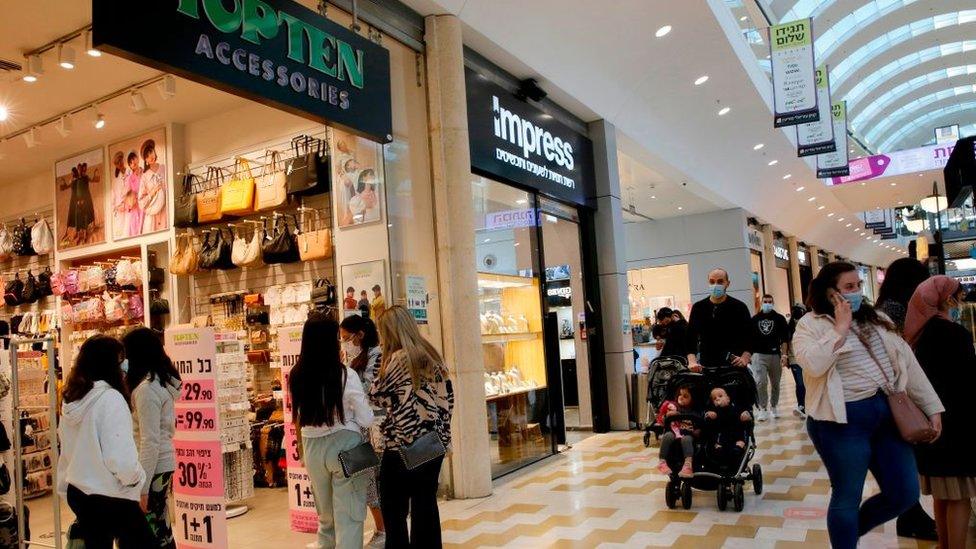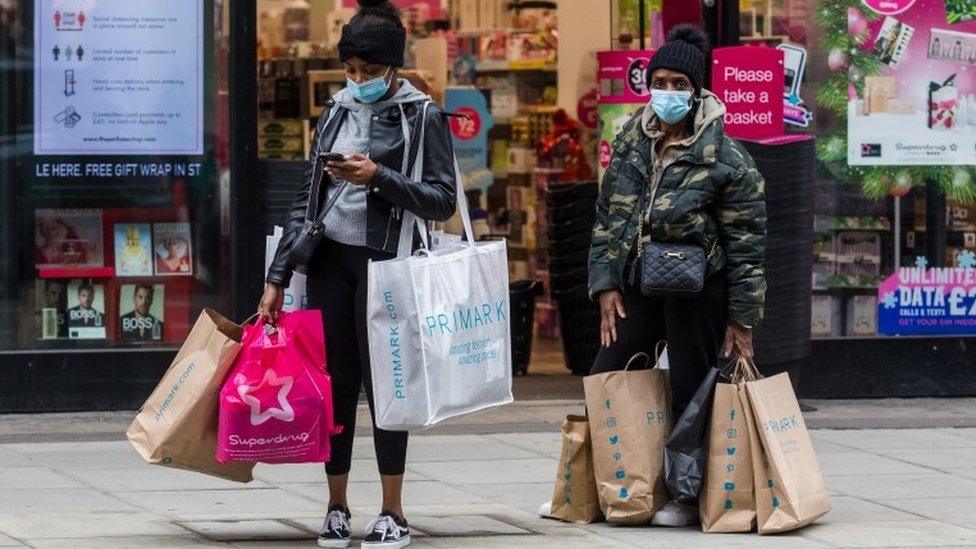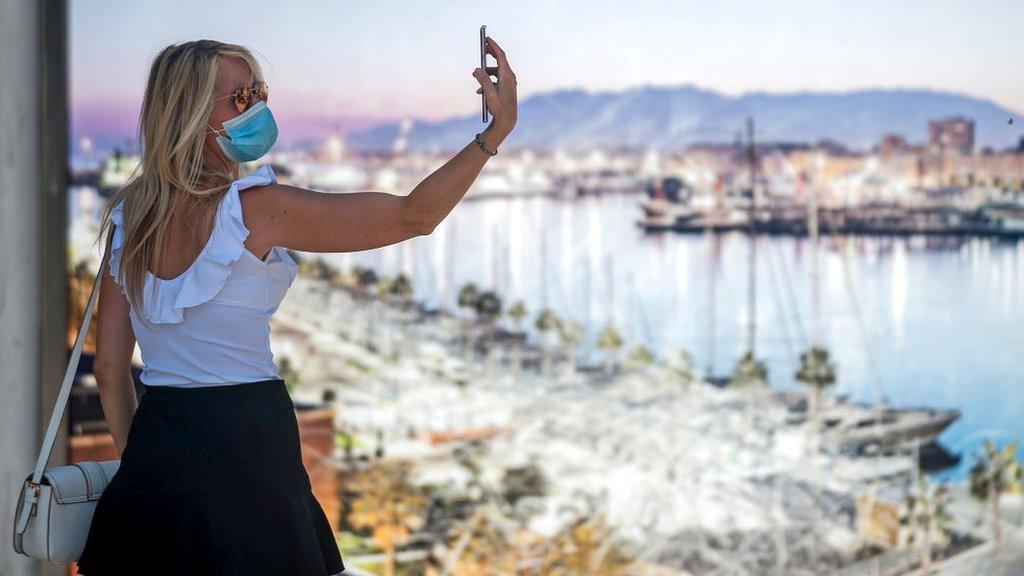Roadmap: Can we avoid an economic long Covid?
- Published
- comments

Expectations had raced ahead on the back of the vaccine rollout. A faster reopening of the economy had been expected.
It is true that the reopening of schools has a significant impact on the ability of parents to work, and also impacts directly on the economic figures.
But the cautious staged lifting of restrictions will also push back the expected economic rebound further into spring.
Indoor reopening of pubs and restaurants, for example, is still nearly three months away, and can only happen in mid-May at the earliest.
Non-essential retail will not reopen for a further seven weeks. Big decisions to move up a stage will have a five-week delay.
The purpose of the caution is to solidify the subsequent recovery through the summer, as all adults receive a vaccine.
Last time, over summer, the government lifted restrictions quickly, even subsidising going to restaurants.
In the end, after the wider reopening there was a deadly second wave, and for some businesses, an even longer lockdown - 14 weeks, at least nationally, for non-essential retail in the second wave, versus 12 weeks in the first wave.
The economic impact of reopening is not just about the lifting of prohibitions. The enduring instinct for people to maintain voluntary forms of social distancing and avoid going to city centres, for example, will continue to weigh on the economy.

People visit a shopping mall in Modiin, Israel, since covid restrictions were lifted
That has been the early evidence from Israel and the US after vaccine adoption and in Australia where cases fell back - that social consumption will remain lower amid high levels of "precautionary behaviour".
The UK is particularly exposed to the economic form of long Covid - an enduring and persistent impact from the pandemic casting a shadow over the economy.
That is because the pandemic has been worse here, and also the UK is more urbanised and its economy more exposed to a hit to social activity.
Businesses burnt by the brief reopening in autumn, or those that stocked up for a normal retail Christmas, would prefer a stable, predictable and credible path for opening, to the uncertainty of stop-start.
That is why the PM kept on stressing a "one-way road to freedom". Businesses can now plan to reopen, albeit later than expected. Economic support will be continued until that time.
But at that point, with the vaccine rolled out everywhere, the blunt instrument of a lockdown will not be used again.
- Published22 February 2021

- Published22 February 2021
- Published23 February 2021

